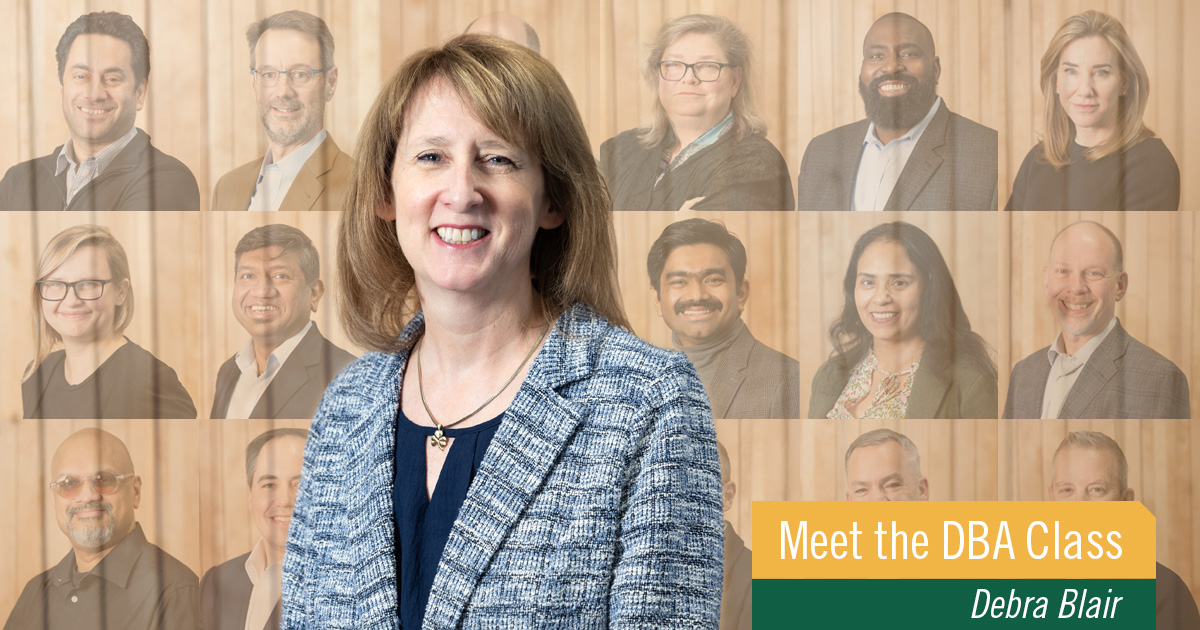New Year’s Resolutions and the Entrepreneurial Mindset

The calendar flips from December to January, and people from all walks of life—students, professionals, almost everyone—feel compelled to make their New Year’s resolutions, often audacious goals that quickly go unrealized and unfulfilled.
Achieving big goals can be difficult, but Donna Kelley P’24 says an entrepreneurial mindset can help people meet their New Year’s resolutions.
“A lot of people do want to make changes in their lives, but there are too many things that get in the way,” says Kelley, chair of the Entrepreneurship Division at Babson College. “They set goals that are unattainable. Those aren’t really bad themselves, but they can be broken down into small goals where you celebrate small wins along the way.”
Sinan Erzurumlu, a professor of innovation and operations management at Babson, echoes those sentiments, saying self-imposed “simple rules” work best for implementing and maintaining lifestyle changes for the better.
“To get where you want to be,” he says, “you need to take these steps one by one.”
Resolutions Game Planning
Exercising more, eating more nutritiously, and saving more money are among the top New Year’s resolutions people made for 2022, according to a sample survey commissioned by Fidelity Investments.
Pursuing New Year’s resolutions with Entrepreneurial Thought & Action® begins with establishing a clear goal, Kelley says. Whether the goal is related to personal fitness, personal finance, or anything else, the key is to implement a feasible plan for achieving the goal.
The entrepreneurial mindset is not a shortcut for success, Erzurumlu says, but it’s “literally taking this journey one step at a time” to get to that “big, overarching guiding star that you have designed for.”
Anyone who hopes to maintain a certain fitness level can establish “rules that you live by,” such as maintaining a regular and consistent exercise routine, says Kelley, an entrepreneurial leader with fitness-related startup experience.
“The important thing with an entrepreneurial mindset is that you take this opportunity to do these small steps and reassess and learn, and try to figure out a way that you can work out that may be different from other people, but you’ve still got that goal in mind,” Kelley says. “You set goals, because everybody has things they want to improve.”
An entrepreneurial mindset involves self-assessment and the potential recruitment of allies to help people realize their goals, says Kelley, also the Frederic C. Hamilton Professor of Free Enterprise Studies at Babson.
“Assess who you are and what resources you have at hand,” Kelley says, noting self-assessment can help individuals meet their goals by guiding people to recognize their preferences and limitations.
Instead of going it alone, the entrepreneurial mindset may inspire people to pursue goals through teamwork.
“You may need a personal trainer,” Kelley says. “You may need a workout buddy, somebody that you can work out with. You may need a dog that can run with you. So, think about who else you need to bring along with you, and then the next step is to try something and make sure you’re assessing it. Assess over time how effective each of these steps are, and you might learn something new about yourself.”
“The important thing with an entrepreneurial mindset is that you take this opportunity to do these small steps and reassess and learn, and try to figure out a way that you can work out that may be different from other people, but you’ve still got that goal in mind.”
Professor of Entrepreneurship Donna Kelley P’24
Taking Small Steps
Achieving a New Year’s resolution can be challenging, so Kelley suggests people take small steps toward the end goal.
“If I said I want to lose 25 pounds, that’s a lot. That’s a big goal,” Kelley says. “What would it take for me to lose five pounds, and just take these kinds of small steps?”
Erzurumlu says it is OK to embrace big goals—“We want to start with something that energizes and excites us,” he notes—but realizing those goals takes actionable steps, self-reflection, and time.
Erzurumlu teaches a course on sustainable operations and innovation, in which students undertake an experiment of attempting to live with six clothing items for two weeks. “It’s almost like a resolution, but it’s a hard resolution,” he says of the class experiment that helps his students understand the difficulty of changing cultural habits. “But, if you achieve it, it’s an amazing goal.”
The entrepreneurial mindset is about moving forward, solving problems, and adapting along the way. Kelley says this approach can help individuals not only realize their resolutions but also establish new goals.
If a growth-minded professional has a resolution to get an MBA and succeeds, “Then maybe the new goal is, ‘Maybe I should talk to my boss about a promotion because now I have a higher level of education and more credibility,’ ” Kelley says. “So, you may tack on to that goal what would be the next step.”
“If you do something continuously for six weeks, your brain starts establishing new habits and new cycles,” Erzurumlu says. “Maybe now you can start seeing that those New Year’s resolutions are now becoming a norm.”




